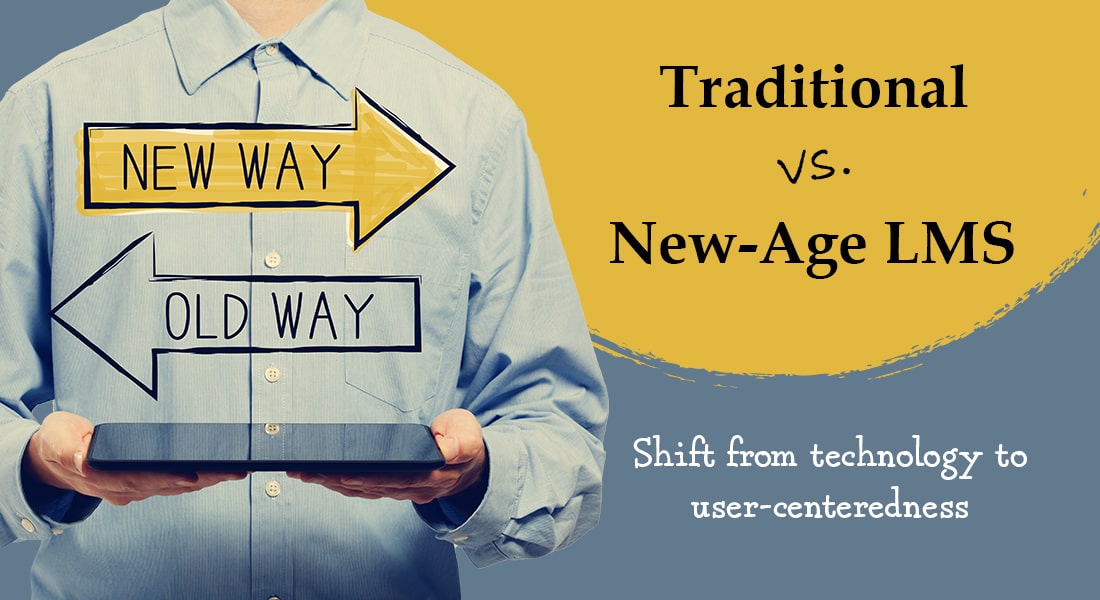How to Make the Best Out of Your LMS? Explore 6 Key Benefits You Can Encash Upon!
Learning Management System, is a great platform to deliver eLearning content for corporate training! Read on to know the top benefits and use cases of LMS.

Learning Management System, LMS, is a great platform to deliver eLearning content for corporate training! But its true efficiency comes out when you know how to use it right. This write-up provides all the information you and your teams need to know to use it right.
Learning Management Systems Help Organize, Track, and Manage Corporate Training
To make the most of it, you need to know the:
- Benefits of Learning Management Systems
- Use Cases of Learning Management Systems
- Uses of Learning Management Systems
Read on to explore more…
The Benefits of Learning Management Systems (LMS)
Learning Management Systems makes corporate eLearning programs more effective. However, the benefits go much beyond that. Here are a few of them:
1. Makes Onboarding Stronger
Having a strong onboarding process sets the tone for your entire business. With such an impactful authority, it is easier to engage and retain new employees. Studies suggest that ‘employees who go through a strong onboarding process are 69% more likely to remain on the job for about three years or longer’.
As an LMS makes the content more organized – easy to access and store – the onboarding process becomes easy.
2. Increases Employee Satisfaction
Employees find it more convenient to learn via eLearning programs as they offer convenience to learn from anywhere and anytime. Apart from making learning fun, Learning Analytics –LMS’ progress tracking and analytics tools make it easier for employees to reflect on their progress and performance. It thus works as an effective strategy to promote employee satisfaction from the learning offered to them.
3. Boosts Employee Retention
According to Business Insider, L&D opportunities are among the top 4 reasons for employees to stay longer at a company. Thus, corporate training – which helps employees learn new skills and grow in their careers – is an excellent employee retention strategy.
As LMS combines different resource materials and learning styles. This way, learning becomes much easier and more efficient. This also has a positive impact on employee retention rates.
4. Reduces the L&D Costs
With an LMS in place, it is possible for an organization to cut down on costs incurring on resources required for corporate training. For instance, it reduces the expenditure required to create a physical environment suitable for training. At the same time, online learning courses are reusable. Thus, the regular investment to create in-person courses can be saved.
The incorporation of different learning styles, and the ability to repurpose the content and distribute it globally make LMS a cost-effective way to deliver online learning.
Overlooking LMS Administration can prove to be very costly for an organization. Here is why.
5. Improves Knowledge Retention
Adults learn better when they get to control when and what to learn. This is where LMS works like magic. With features like access to different learning styles, tracking progress, real-time communication, etc, corporate LMS enables the learner to control the entire learning journey. Thus, it boosts the learner’s ability to retain knowledge.
Therefore, it can be said that with an LMS in place for corporate training, the whole L&D process becomes more efficient.
6. Makes Performance Tracking Efficient
With an LMS, it is much easier for trainers and instructors to track the learning and performance of the employees. The instructors can view the progress and performance of individual employees. Further, the LMS also provides the required information to create detailed reports that can be valuable for both instructors and learners.
The performance tracking feature of an LMS makes it easy to identify learning and knowledge gaps. Once the gaps are identified, it is easier to figure out how to make the training programs better.
Use Cases of Learning Management Systems (LMS)
Compliance Training
Compliance training – which involves training the employees on the rules, laws, regulations, and company policies – is a vital part of corporate training. LMS is the best way to deliver compliance training as it helps monitor the employees’ progress and understanding of the program. The records of completion can be documented and used in case of an audit.
Technology Upskilling
Technological capabilities open businesses to newer opportunities. In this light, it is important for companies to keep their employees updated on technology. The use of LMS to upskill and reskill internal teams’ technology competence is cost-efficient. At the same time, it also makes learning fun and interesting for them.
Sales Enablement
It is very important that sales have an in-depth understanding of the product/ service they sell. Therefore, it is very important to give them proper training right from the time of onboarding. However, global enterprises find it difficult to train their sales teams from different countries. LMS serves as the best way to train sales teams across remote locations.
Soft Skills Training
Soft skills are extremely important for professionals. However, it can be challenging to train employees in soft skills. Not all employees may be motivated to foster and nurture soft skills. Additionally, the soft skills training program may not be effective if it is not very engaging. The use of LMS for soft skills training can be helpful in creating engaging content for topics like leadership, communication, time management, etc.
Uses of Learning Management Systems (LMS)
For User Management
On an LMS, administrators can
- Create user accounts
- Create and assign users to groups
- Assign learning paths for users
- Manage access and permissions to content
For Course Management
LMS enables administrators to
- Assign courses to specific users or groups
- Send notifications to users notifying them about the courses assigned
- Track learning activity
- Post events on the training calendar
For Reporting
Administrators can
- Monitor and track employee learning
- Document their learning and create detailed reports
How to Get the Best Out of a Learning Management Systems
LMS can make corporate training more effective and advanced. Following some best practices can add to this. Some of them include:
- Deploy a dedicated Learning & Development (L&D) team to handle the learning activities.
- Have dedicated functional training teams to handle functional training and decentralize training.
- Have full-time LMS administrators who are responsible for everything that happens on the platform.
Wrapping Up
LMS makes corporate training better! It makes learning experience easier and productive – for the learner as well as the trainer. The benefits listed out tell you how and why. Now that you have understand LMS, you should focus on choosing the Right LMS to obtain the desired results. This eBook will help you with it. Get your hands on it to scale your corporate training to newer heights.





